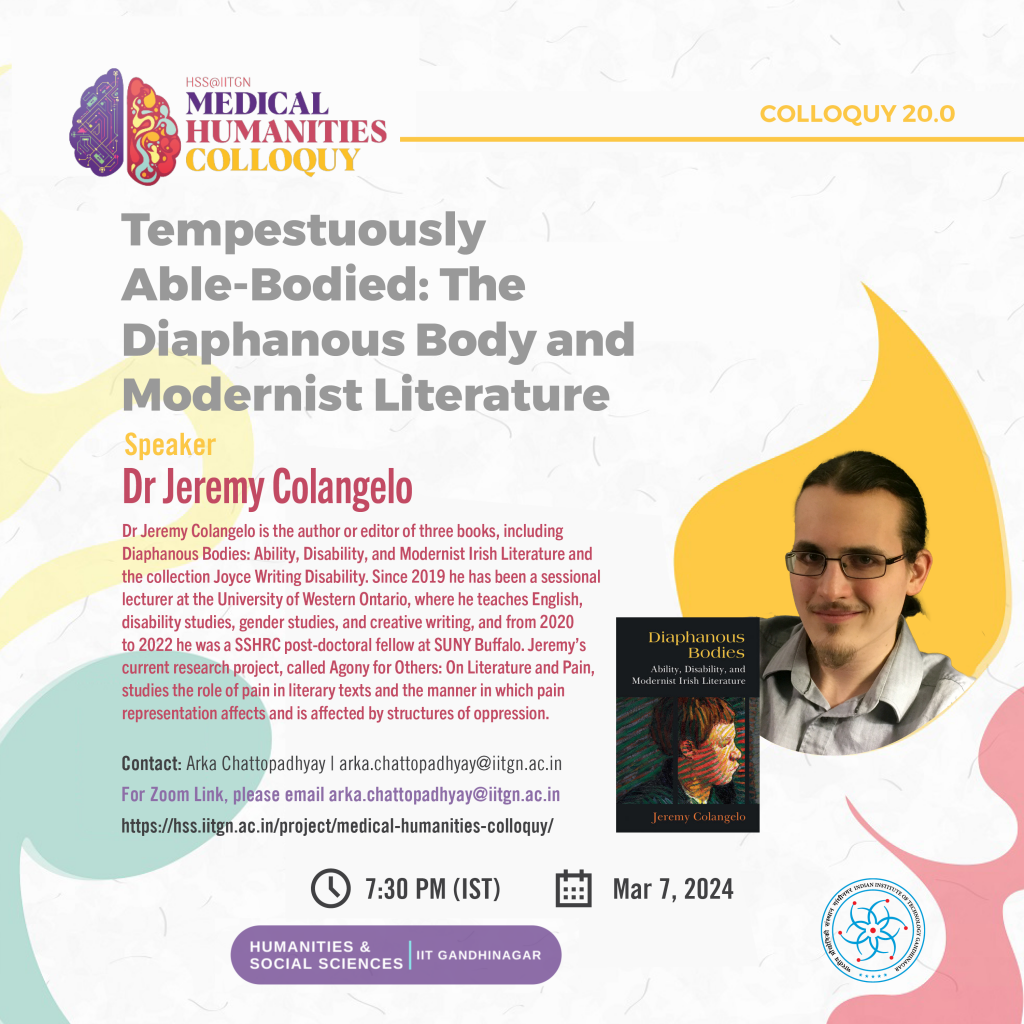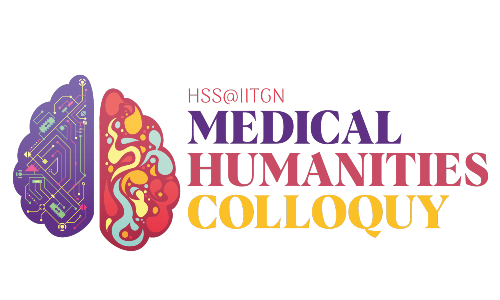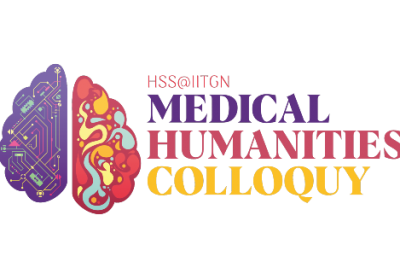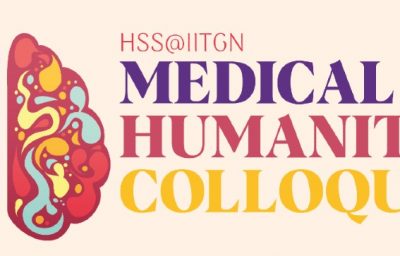Date and Time: March 7, 7:30 PM IST
Speaker: Dr. Jeremy Colangelo (Lecturer, University of Western Ontario)
Joining Link: https://iitgn-ac-in.zoom.us/j/99448823515
Meeting ID: 994 4882 3515
Passcode: 079692
Title: Tempestuously Able-Bodied: The Diaphanous Body and Modernist Literature
Description: Though disability studies scholars have long recognized that the categories of ability and disability are co-dependent and interrelated, few have taken the next logical step of using a disability studies framework to examine where ability, as a category of embodiment and embodied experience, arises from. Drawing principally on the phenomenologies of Emmanuel Levinas and Maurice Merleau-Ponty, this study pursues an answer to this question, and in the process opens up a major new area of inquiry in the growing field of literary disability studies. It argues that the textual construction of ability arises through a process of exclusion and forgetting, in which the depiction of sensory information and epistemological judgement subtly (or sometimes un-subtly) elides the fact of embodied subjectivity. What arises is the myth of the diaphanous (i.e. transparent) abled body, an enabling fiction which holds that an abled body is one which does not participate in or situate experience, and which underwrites the myth that abled and disabled constitute two distinct categories of being rather artificially separated regions on a continuum.
Dr. Jeremy Colangelo is the author or editor of three books, including Diaphanous Bodies: Ability, Disability, and Modernist Irish Literature and the collection Joyce Writing Disability. Since 2019 he has been a sessional lecturer at the University of Western Ontario, where he teaches English, disability studies, gender studies, and creative writing, and from 2020 to 2022 he was a SSHRC post-doctoral fellow at SUNY Buffalo. Jeremy’s current research project, called Agony for Others: On Literature and Pain, studies the role of pain in literary texts and the manner in which pain representation affects and is affected by structures of oppression.





